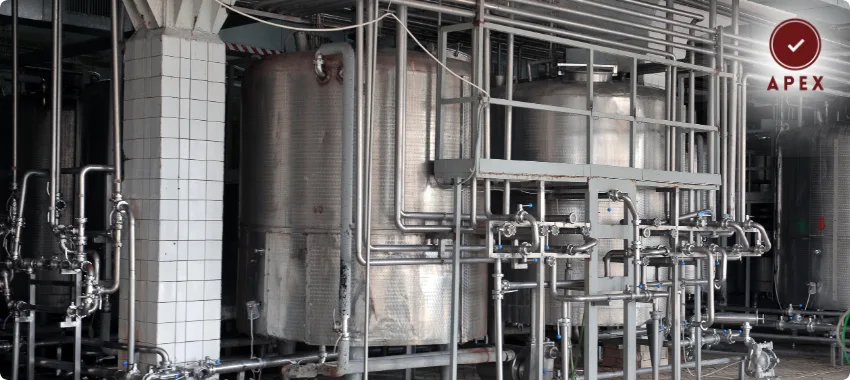GMP Certification

What is GMP Certification?
GMP Certification is a seal of approval released by the regulatory authorities that documents a firm’s manufacturing process as complying with Good Manufacturing Practice
These periodic audits and inspections ensure that the manufacturers adhere to the benchmarked standards of safety and quality of their premises, instruments, man, and process. Availing GMP Certification thus ensures that the firms will deliver quality products safe for consumers.
Importance of GMP Certification in the Manufacturing Industry
GMP Certification is very important to the pharmaceutical and food manufacturing industry as the concerned sectors have a direct association with public health. Deficiency of GMP standards may result in the supply of defective products, which may then lead to recalls, health risks, or even legal procedures.
Compliance with GMP ensures both safety and effectiveness for the product and inspires confidence in manufacturers among consumers. It also offers some form of competitive advantage, especially in international markets, where compliance with GMP could become a requirement for business.
Global GMP Standards and Regulations
Although GMP is an internationally recognized standard, the guidelines differ between countries. For example, WHO provides international GMP guidelines that pertain to most of the world. The U.S. FDA has cGMP, while GMP is regulated in the European Union by the European Medicines Agency. Although these standards will vary by region, the core elements of GMP remain constant: ensuring product quality with no risk involved.
Key Requirements for GMP Certification
All of these detail obtaining GMP certification, which meets numerous core requirements. These are in place to find a basis for sound manufacturing practices, ensuring protection both for the manufacturer and the final consumer.
Personnel Training and Hygiene Standard
Employees should be trained based on the nature of work about GMP requirements. Continued training ensures that there are always people aware of risk factors, hygiene, and proper handling of material. Employees must, therefore, work to very tight hygiene standards, which include wearing appropriate clothes, personal protective equipment, and hand washing to prevent contamination.
Core Principles of GMP Certification
The core principles of GMP Certification range across an enormous cross-section of the manufacturing process elements.
- Hygiene and sanitation: All equipment and working areas are washed clean to remove contamination.
- Environmental controls: Air temperature and humidity controls to preserve product integrity.
- Preventive maintenance: Ensuring all equipment is properly maintained and calibrated.
- Safe and appropriate storage: Products are stored under conditions ensuring safe and good quality.
- Rich documentation: Maintaining records for each phase of manufacture for traceability.
Scope of GMP in Various Industries
The GMP standards can be applied to diverse industries, yet each industry has clearly outlined requirements by the nature of products manufactured.
GMP Certification of Pharmaceutical Companies
For pharma manufacturers, GMP certification is not merely best practice but a statutory requirement in most countries. Pharmaceuticals have direct health implications, and every product must be produced consistently and in line with strict safety and efficacy standards.
GMP Certification for Food and Beverage Manufacturing
GMP Certification ensures food safety, prevents contamination, and ensures hygiene in food production. HACCP is usually applied along with GMP in food production.
GMP Certification for Cosmetic and Personal Care Products
Cosmetic manufacturers adhere to GMP to ensure products are safe for consumers. Controls over raw materials, production methods, and packaging are strictly maintained to avoid contamination or adulteration.
GMP Certification for the Supplement Industry
GMP certification guarantees consistency and proper labeling of supplements, ensuring consumers aren’t misled by false claims or harmful ingredients.
Benefits of GMP Certification
Companies that achieve GMP certification gain numerous benefits regarding regulations and market positioning.
Ensure Food Safety and Quality
GMP certification ensures that products meet high standards for safety and quality, reducing the risk of damaged goods, recalls, litigation, or a tarnished brand reputation.
Customer Trust and Confidence Building
Consumers are more likely to trust companies that demonstrate a commitment to safety and quality. GMP certification serves as a mark of reliability, helping manufacturers build consumer trust.
FAQ's
- ISO 9001 Certification
- ISO 14001 Certification
- ISO 45001 Certification
- HACCP Certification
- ISO 22000 Certification
- ISO 22716 Certification
- Halal Certification
- ISO 27001 Certification
- ISO 22301 Certification
- ISO 41001 Certification
- ISO 50001 Certification
- ISO 10002 Certification
- ISO 10004 Certification
- ISO 26000 Certification
- ISO 31000 Certification
- ISO 20400 Certification
